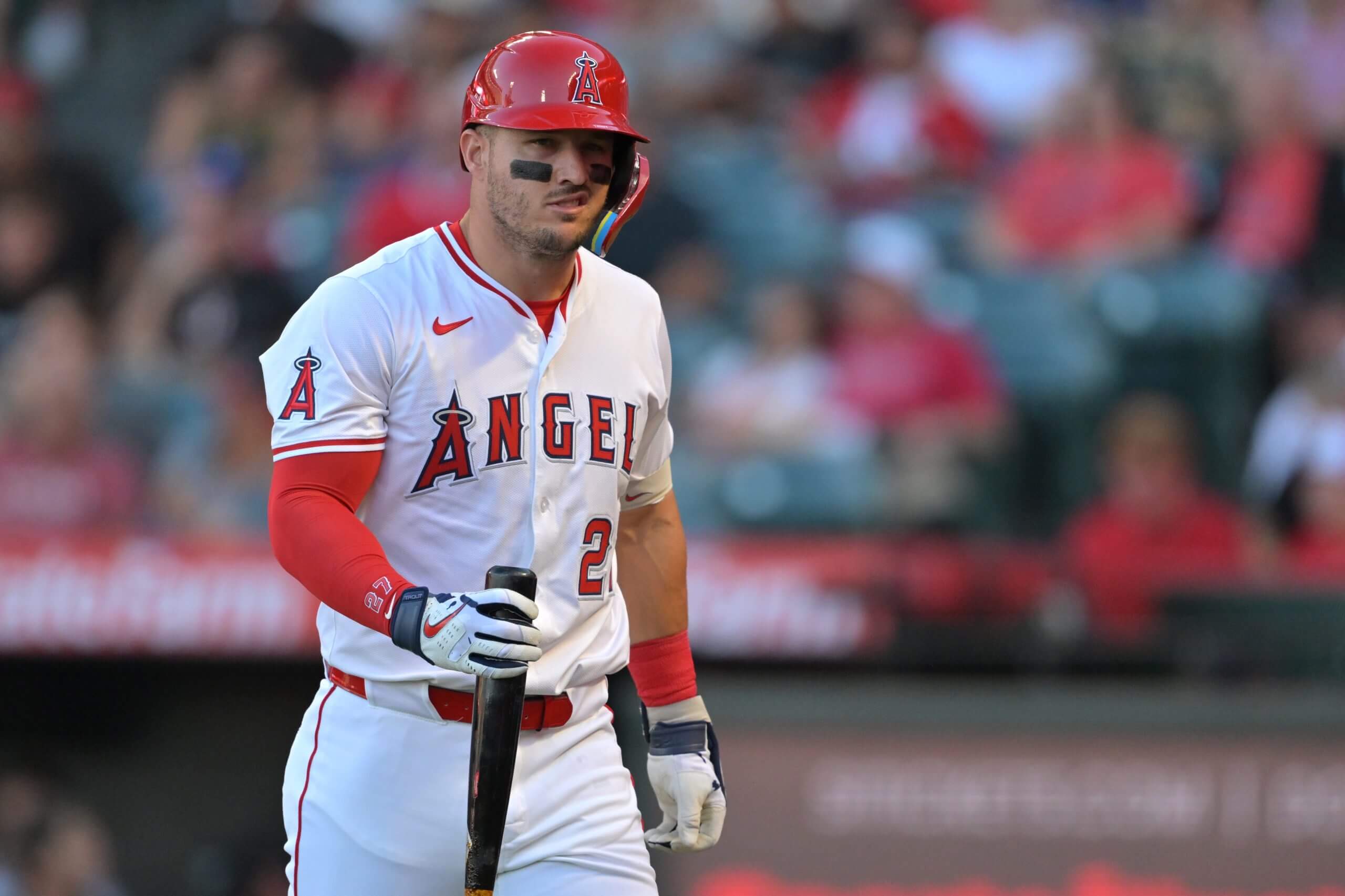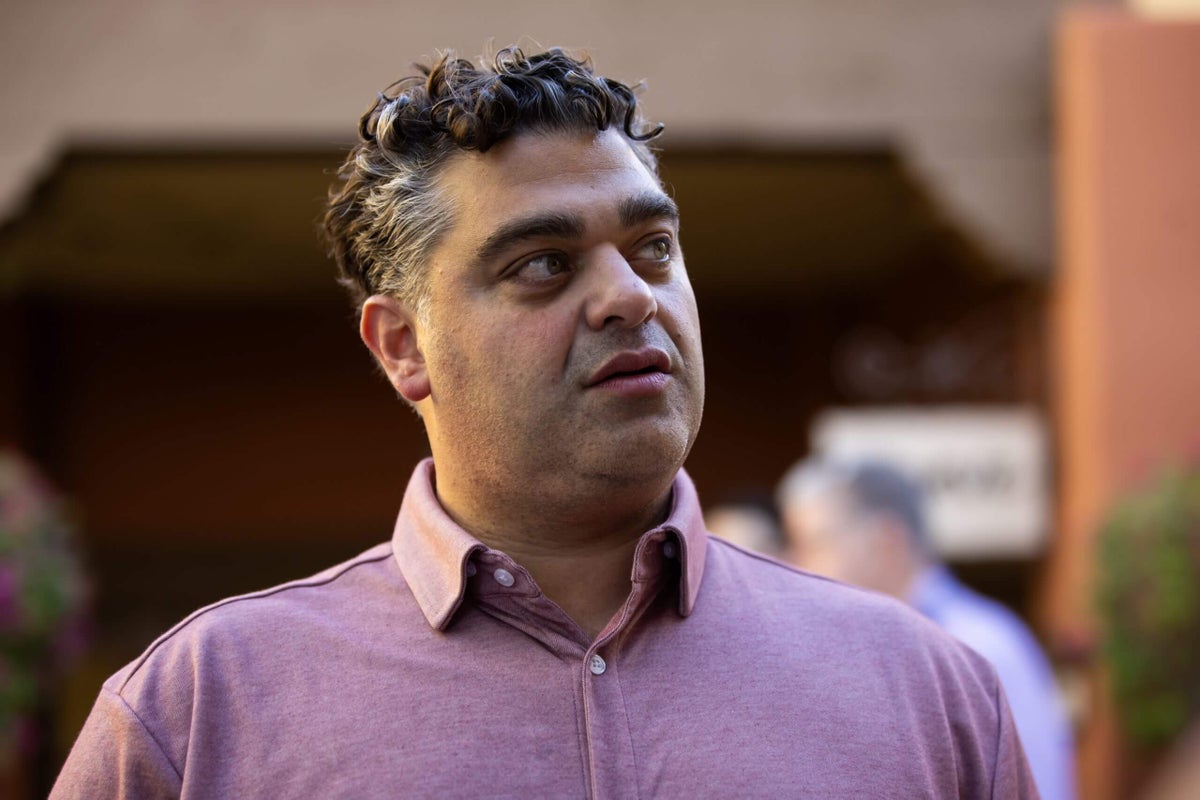ANAHEIM, Calif. — When the Los Angeles Angels declined the option on their manager, Ron Washington, earlier this week, general manager Perry Minasian said it was because of his performance. Simply put, the team believed, the product on the field was not good enough.
So it stands to reason that accountability for that aforementioned poor performance falls on everybody. Including the fifth-year GM for a team that has never won more than 77 games in a season, and boasts a dreadful 358-452 overall record, during his tenure.
But when Minasian — who will stay on as the team’s chief baseball operations executive — was asked to assess his own performance, he evaded. Given a chance to take accountability for failure after failure, he declined.
“I’m not worried about that,” he said. “I’m worried about going forward, where we are at this point in time, making the team better, hiring the right manager.”
But, he was asked, if you can assess everyone else’s job performance, can’t you measure your own?
“That would be a question for somebody else.”
The Angels are an organization that refuses to look inward at their own mistakes and failures. The next manager will be their sixth in nine seasons — enough for any sensible person to know that the problem extends far beyond that chair.
This is a franchise that has an MLB-worst 11 seasons without a playoff performance. A galling 10 years without a winning record. And now 16 seasons without a postseason win. Yet they operate with the confidence and indignation of a franchise that has earned the benefit of the doubt.
Minasian absolutely could have answered that question. He should have answered that question with honesty and contrition. Not just because it’s what the fans of this team deserve, but because it would instill belief that there’s hope for legitimate introspection.
Instead, it appears, the Angels are just going to hire a new manager, run it back and hope against hope that it will all magically work itself out. The same as every other year.
“The goal is to obviously improve,” Minasian said. “I’m not one for predictions. I don’t make predictions. The goal this offseason is to make the team as good as we can make it.”
The best the Angels could do this year was quite bad. Their pitching staff had the worst ERA in the American League. Their offense had the second-most strikeouts of any team in MLB history. Their defense posted minus-45 defensive runs saved, third worst in baseball.

Mike Trout finished the season with a strikeout rate over 30 percent for the first time in his career. (Jayne Kamin-Oncea / Getty Images)
By nearly every statistical measure, this club was extremely fortunate to go 72-90. There was no substantive improvement from the franchise-worst 63-99 team the year prior. All of the affiliates finished below .500.
There is no young core. There is no bright future. There’s nothing, really, besides a sales pitch that has become less and less credible to a rightfully impatient fan base.
“Was there an improvement? Yes,” Minasian said, acknowledging the team has areas where it needs to improve, and that the organization isn’t where it wants to be. “Three or four teams made that type of improvement. A nine-game improvement. Not many teams did that.”
The Angels are never good; they simply credit themselves for being different iterations of bad.
The A’s have torn it all down, moved into a Triple-A ballpark, and operate with a payroll below $80 million. They’ve already lapped the Angels in their rebuild — complete with a young core that is significantly better than the Angels’.
This sport is littered with clubs that have hit their nadirs and rebounded all within the timeframe of the Angels’ last winning record, the Detroit Tigers, Miami Marlins, Baltimore Orioles, Arizona Diamondbacks and many more.
Those teams looked inward and built. They made tough trades and embraced the pain of doing what it took to win. The Angels won’t even acknowledge there’s a problem to begin with.
Minasian gushed praise over player development director Joey Prebynski, despite copious failures in the minor leagues, saying he had “enormous confidence” in him and his communication style.
He praised ownership for its commitment to winning, despite having no clear direction on payroll. He stated simply that “Arte and Carole (Moreno) have always invested in the club. I don’t see it changing.”
The fans have put up with a lot. At the very least, they deserve to be leveled with, not gaslit into believing this isn’t the chaotic, awful mess they can see with their own two eyes.
For six days after the season ended, Minasian did not hold a news conference. Every day was a waiting game to see whether one would be scheduled. Finally, late on a Friday night, with 17 hours’ notice, the Angels announced his availability. On a Saturday, the first day of all four Division Series.
It is a mystery why it took so long. Perhaps Moreno was still deciding on Minasian’s status with the club. Perhaps Minasian just didn’t know what to say. Maybe the Angels wanted to wait until a weekend day when their fans were preoccupied with something else.
The news conference ended the same way it started: with a line of questioning that Minasian clearly wanted to avoid.
Do you feel like you have the authority from Moreno, and his confidence to make decisions such as who is the next manager?
“That would be a question for him.”
Do you get that sense talking to him?
“That’s a question for him.”
When it comes to anything of substance, reflection or contrition, for Minasian and the Angels, there’s never an answer. Just a deflection or a canned talking point. And after 10 years of losing, no one is buying it.
(Top photo of Perry Minasian from the 2023 GM meetings: Mark J. Rebilas / Imagn Images)

